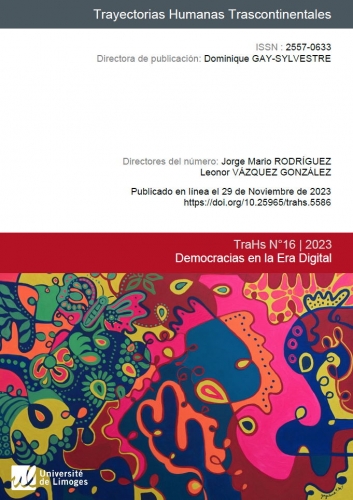El mundo actual enfrenta una época política turbulenta, en la cual se presentan desafíos políticos como el regreso del autoritarismo, la profunda desigualdad social y una creciente polarización ciudadana, entre otros fenómenos que requieren de reflexión y análisis para vislumbrar su solución. Este es un tiempo en el cual se deben buscar grandes acuerdos para resolver los grandes riesgos de la humanidad —el cambio climático, la transformación tecnológica del trabajo y la creciente desigualdad—. Parece, sin embargo, que la oportunidad de lograr grandes acuerdos políticos, de naturaleza local y global, se aleja con el surgimiento acelerado de escenarios complicados. Gran parte de este problema se debe a la colonización de la comunicación social por parte de las tecnologías y sus redes. Esta situación se ilustra con fenómenos políticos como el ascenso de Trump a la presidencia de los Estados Unidos y el Brexit. Estos eventos pusieron de manifiesto la forma en que las grandes empresas tecnológicas alteran los procesos políticos en diferentes sociedades. Al mismo tiempo, la esfera pública mundial se ve inundada de noticias falsas y de una manipulación de la atención que repercute en el crecimiento del disenso y la animosidad. La democracia se socava, además, por el creciente control tecnológico de la sociedad, fenómeno que se incrementa con la lucha geopolítica.
Se está ya muy lejos de las esperanzas que despertara la comunicación supuestamente horizontal que prometían las redes sociales. Esta turbulencia no puede ser desvinculada de la falta de regulación de los medios digitales, los cuales han sido cuestionados por sus prácticas oscuras y secretas. Es necesario, en consecuencia, preguntarse por los nuevos horizontes que existen para el desarrollo de la democracia. Surge una serie de preguntas: ¿Es posible una democracia funcional dentro del mundo de la vida digital? ¿Es posible reformar el marco comunicativo tecnológico para proteger la democracia y los derechos fundamentales? ¿Estamos condenados a la distopía político-tecnológica? Este tópico de investigación requiere de análisis interdisciplinarios que puedan encontrar soluciones para que las sociedades puedan fomentar su conciencia de las complicaciones que afectan a la democracia.
